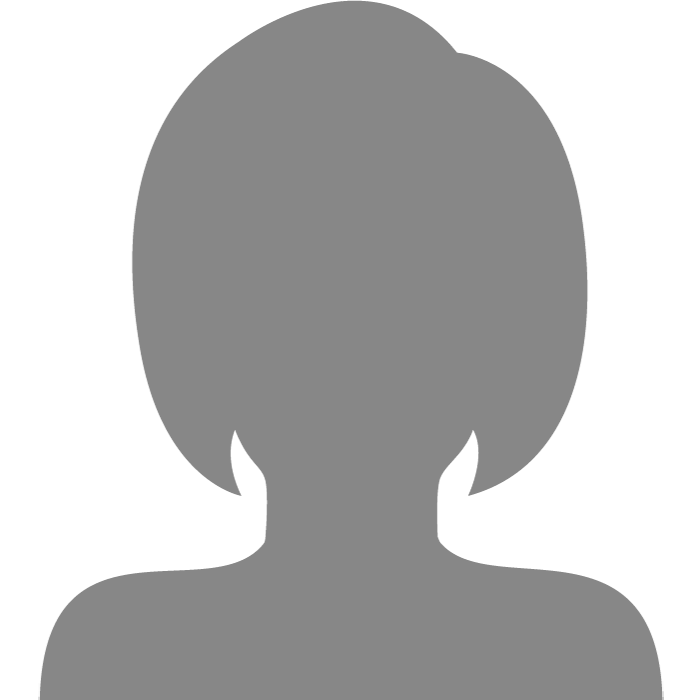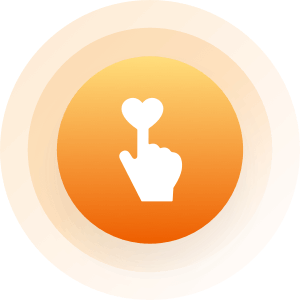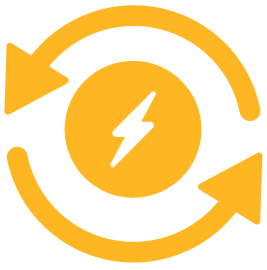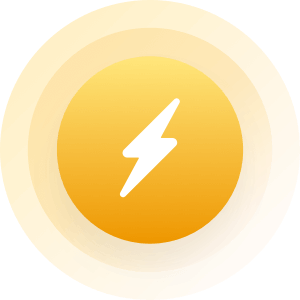| Topic: On human nature and behaviour.. | |
|---|---|
|
Look around at the results we create ... most of that comes from the unconscious.
I have a few issues with this claim... If the unconscious is unknown to one's conscious deliberation, and it is, then how can one attribute a value of self creation to a property(unconscious) which is not consciously considered within the the individual during the process of choosing anything? The very notion that the unconscious creates establishes a separation between one and their self, by giving the unconscious it's own independent identity as the self. There has been no indication whatsoever in neuroscience that there exists a property, system, or all inclusive mechanism within the brain which connects all of the individual areas used throughout our cognitive functioning. This would be required to effectively establish that there does exist an entity of any type that does our choosing and/or creating for us without our conscious knowledge. Altering any given area of the brain alters that area's functional capability within the individual. Therefore, the idea that something exists independently of the brain within the brain is without support. If there exists an entity within our brain that does the choosing and therefore the creating, then that entity is no entity at all. It is but another creation of the human condition, and that existence is not only caused by the brain but suffers with it as well. That is not a feature which defines and/or supports any notion of physiological independence. Our programming is pretty complete by the time we are about 8. All that 'stuff' is like minimized programs on your computer taking up space and affecting the performance. Some of that early programming is good ... like not walking out infront of a bus ... but most of it is quite useless and self sabotaging ...
This would completely depend upon the value assessment given to the early knowledge base by the individual at a later age. I am not so sure that I would agree with the claim that our programming is ever complete at any age. Human development always continues throughout life. It was once a common (mis)belief that the individual personality was already established by the age of 3, but this has never been shown with experiment, and is completely refuted by the very fact that one can learn and accept new information at any age which, in turn, changes the way that individual views the world. It would only follow that a change in one's view and understanding about what they observe would not only lend itself to a broader sense of possibilities, but would also create different physical and mental reactions to what is being observed, thereby changing some aspects of the personality. I believe our external world is just a reflection of our internal one. If we don't like what we see out there ... our work is internal because you can be sure that one or more of those unconscious programs is active.
This idea attempts to correlate and/or equate causation of experience with one's thought. Thought is not causation for experience. Thought is only causation for what one concludes and/or assesses from experience. Thought does not cause external physical experience. An African American in the 1800s who has been surrounded by a KKK clan during a lynching attempt would argue that his/her immediate experience is not a direct reflection of their own thoughts and/or choices, wouldn't you say? Clean up the internal and the external disturbance goes away.

|
|
|
|
|
|
Perhaps the subconscious is known, it has just been forgotten.
Is there a distinction between the unconscious and the subconscious? Just wondering. I unconsciously loose my car keys all the time and create havoc in my life. Unconsciously doing something is not done without thinking, it is simply done automatically and you do not remember it. How many times did you breathe today? I think the distinction between the subconscious and the unconscious could be that the unconscious is just things we do not pay attention to, and the subconscious is knowledge we have forgotten. |
|
|
|
|
|
Edited by
creativesoul
on
Sun 12/14/08 12:21 PM
|
|
|
Perhaps the subconscious is known, it has just been forgotten. Is there a distinction between the unconscious and the subconscious? Just wondering.
I think the only distinction is a personal preference. I prefer the term unconscious only because of the implicit meaning of the prefix sub. It implies below or beneath, whereas un implies without. I unconsciously loose my car keys all the time and create havoc in my life. Unconsciously doing something is not done without thinking, it is simply done automatically and you do not remember it.
Unconsciously doing something is action without conscious thought. That is the very distinction between conscious action and unconscious action. Conscious action is thought about and unconscious action is not. How many times did you breathe today?
This question is meant to imply that breathing is an unconscious action, and by strict definition it is. But it is a physiological process born of instinct. Instinct knows no consciousness, and it needs none. |
|
|
|
|
|
Well, I have googled both, and have chosen the same site for my results
subconscious Also found in: Medical, Encyclopedia, Wikipedia, Hutchinson adj. Not wholly conscious; partially or imperfectly conscious: subconscious perceptions. n. The part of the mind below the level of conscious perception. Often used with the. sub·conscious·ly adv. sub·conscious·ness n. The American Heritage® Dictionary of the English Language, Fourth Edition copyright ©2000 by Houghton Mifflin Company. Updated in 2003. Published by Houghton Mifflin Company. All rights reserved. subconscious Adjective happening or existing without one's awareness Noun Psychol the part of the mind that contains memories and motives of which one is not aware but which can influence one's behaviour subconsciously adv Collins Essential English Dictionary 2nd Edition 2006 © HarperCollins Publishers 2004, 2006 unconscious Also found in: Medical, Encyclopedia, Wikipedia, Hutchinson un·con·scious (n-knshs) adj. 1. Lacking awareness and the capacity for sensory perception; not conscious. 2. Temporarily lacking consciousness. 3. Occurring in the absence of conscious awareness or thought: unconscious resentment; unconscious fears. 4. Without conscious control; involuntary or unintended: an unconscious mannerism. n. The division of the mind in psychoanalytic theory containing elements of psychic makeup, such as memories or repressed desires, that are not subject to conscious perception or control but that often affect conscious thoughts and behavior. un·conscious·ly adv. un·conscious·ness n. The American Heritage® Dictionary of the English Language, Fourth Edition copyright ©2000 by Houghton Mifflin Company. Updated in 2003. Published by Houghton Mifflin Company. All rights reserved. unconscious Adjective 1. unable to notice or respond to things which one would normally be aware of through the senses; insensible or comatose 2. not aware of one's actions or behaviour: unconscious of his failure 3. not realized or intended: unconscious duplicity 4. coming from or produced by the unconscious: unconscious mental processes Noun I don't see much difference in it, but enough to make it matter in places. |
|
|
|
|
|
Look around at the results we create ... most of that comes from the unconscious.
I have a few issues with this claim... If the unconscious is unknown to one's conscious deliberation, and it is, then how can one attribute a value of self creation to a property(unconscious) which is not consciously considered within the the individual during the process of choosing anything? The very notion that the unconscious creates establishes a separation between one and their self, by giving the unconscious it's own independent identity as the self. There has been no indication whatsoever in neuroscience that there exists a property, system, or all inclusive mechanism within the brain which connects all of the individual areas used throughout our cognitive functioning. This would be required to effectively establish that there does exist an entity of any type that does our choosing and/or creating for us without our conscious knowledge. Altering any given area of the brain alters that area's functional capability within the individual. Therefore, the idea that something exists independently of the brain within the brain is without support. If there exists an entity within our brain that does the choosing and therefore the creating, then that entity is no entity at all. It is but another creation of the human condition, and that existence is not only caused by the brain but suffers with it as well. That is not a feature which defines and/or supports any notion of physiological independence. Our programming is pretty complete by the time we are about 8. All that 'stuff' is like minimized programs on your computer taking up space and affecting the performance. Some of that early programming is good ... like not walking out infront of a bus ... but most of it is quite useless and self sabotaging ...
This would completely depend upon the value assessment given to the early knowledge base by the individual at a later age. I am not so sure that I would agree with the claim that our programming is ever complete at any age. Human development always continues throughout life. It was once a common (mis)belief that the individual personality was already established by the age of 3, but this has never been shown with experiment, and is completely refuted by the very fact that one can learn and accept new information at any age which, in turn, changes the way that individual views the world. It would only follow that a change in one's view and understanding about what they observe would not only lend itself to a broader sense of possibilities, but would also create different physical and mental reactions to what is being observed, thereby changing some aspects of the personality. I believe our external world is just a reflection of our internal one. If we don't like what we see out there ... our work is internal because you can be sure that one or more of those unconscious programs is active.
This idea attempts to correlate and/or equate causation of experience with one's thought. Thought is not causation for experience. Thought is only causation for what one concludes and/or assesses from experience. Thought does not cause external physical experience. An African American in the 1800s who has been surrounded by a KKK clan during a lynching attempt would argue that his/her immediate experience is not a direct reflection of their own thoughts and/or choices, wouldn't you say? Clean up the internal and the external disturbance goes away.

Do people consciously sabotage their own happiness? I see people all the time behaving in ways that are the exact opposite of what they say they want. I'd call that unconscious. In no way do I mean to imply that humans don't continue to evolve and grow. We do. We also have the capacity to uncover those limiting beliefs that we were not conscious of that were affecting our behaviour. That stuff we pick up in childhood but then take on as our own. |
|
|
|
|
|
There can be little to no doubt concerning the unconscious element of human existence.
Do people intentionally sabotage their own happiness? I suppose that would depend upon the totality of what makes up the person. Doing what one thinks is best, does not always turn out to be that way. Hindsight is 20/20... Purposeful choice is limited by human understanding, and the effects of that choice do not always match what the chooser forsees as the possible consequences for the action. |
|
|
|
|
|
Edited by
ArtGurl
on
Sun 12/14/08 12:54 PM
|
|
|
There can be little to no doubt concerning the unconscious element of human existence. Do people intentionally sabotage their own happiness? I suppose that would depend upon the totality of what makes up the person. Doing what one thinks is best, does not always turn out to be that way. Hindsight is 20/20... Purposeful choice is limited by human understanding, and the effects of that choice do not always match what the chooser forsees as the possible consequences for the action. I am saying it is done unconsciously |
|
|
|
|
|
Edited by
Jess642
on
Sun 12/14/08 12:56 PM
|
|
|
Once again what is this requirement to separate?
The conscious from the unconscious? The old excuse of 'I am responsible for my conscious decisions... but am a completly incapacitated victim to my unconscious decisions' The more one becomes aware.. conscious, and aware of the observer... the less reactive one is.... Ego is a clever little ****ens... it's whole existence is sustained by drama and trickery... trickery as even the example of ..'I am was not conscious of my behaviours, my decisions, my fears, my doubts...so therefore I am not responsible...' That's not unconsciousness...it's an egoic excuse. Lucid dreaming, lucid living, is being present, and removing the un from consciousness from our vocabulary. |
|
|
|
|
|
Edited by
Jeanniebean
on
Sun 12/14/08 01:32 PM
|
|
|
There can be little to no doubt concerning the unconscious element of human existence. Do people intentionally sabotage their own happiness? I suppose that would depend upon the totality of what makes up the person. Doing what one thinks is best, does not always turn out to be that way. Hindsight is 20/20... Purposeful choice is limited by human understanding, and the effects of that choice do not always match what the chooser forsees as the possible consequences for the action. I am saying it is done unconsciously Unconsciously simply means that they are not aware that what they are doing and thinking and feeling is the 'cause' of their unhappiness. A person's situation, state of wealth or poverty, health etc. are only contributing circumstance to their thoughts on these conditions. It is the thoughts that create unhappiness, not the circumstances. A person might say they are unhappy because they are alone, or because they are poor or sick or unattractive, but even people who have families and money and good health and good looks can be unhappy. |
|
|
|
|
|
There can be little to no doubt concerning the unconscious element of human existence. Do people intentionally sabotage their own happiness? I suppose that would depend upon the totality of what makes up the person. Doing what one thinks is best, does not always turn out to be that way. Hindsight is 20/20... Purposeful choice is limited by human understanding, and the effects of that choice do not always match what the chooser forsees as the possible consequences for the action. I am saying it is done unconsciously Unconsciously simply means that they are not aware that what they are doing and thinking and feeling is the 'cause' of their unhappiness. A person's situation, state of wealth or poverty, health etc. are only contributing circumstance to their thoughts on these conditions. It is the thoughts that create unhappiness, not the circumstances. A person might say they are unhappy because they are alone, or because they are poor or sick or unattractive, but even people who have families and money and good health and good looks can be unhappy.  Thats true. Thats true. I have most of those things and I am feeling unhappy right now I have most of those things and I am feeling unhappy right now
|
|
|
|
|
|
Mirror, you would make a good test subject.
Tell me why you are unhappy? What thoughts do you think that cause you to be unhappy? |
|
|
|
|
|
A man accidentally falls overboard and drowns. His wife is quite disturbed and unhappy as a result...
the wife is unhappy not from her thoughts, but from her observation of actuality. Her loss is not due to her thought about the observation after the fact. Her loss is due to the fact. Misplacement of causation is more harmful to accurate understanding then no placement. That is the death knell in the coffin of observer created anything by thought alone. Thought affects the one thinking, not what one is thinking about. 
|
|
|
|
|
|
A man accidentally falls overboard and drowns. His wife is quite disturbed and unhappy as a result... the wife is unhappy not from her thoughts, but from her observation of actuality. Her loss is not due to her thought about the observation after the fact. Her loss is due to the fact. Misplacement of causation is more harmful to accurate understanding then no placement. That is the death knell in the coffin of observer created anything by thought alone. Thought affects the one thinking, not what one is thinking about. 
Actually, her unhappiness is her interpretation of a chemical reaction within her body we commonly call emotion. It is her thoughts about the event that create that chemical reaction. We can analyze the humanity out of almost anything ... 
I don't think anything is created by thought alone... Thoughts affect feelings Feelings affect actions Actions affect outcome |
|
|
|
|

|
|
|
|
|
|
Edited by
Jeanniebean
on
Sun 12/14/08 03:11 PM
|
|
|
A man accidentally falls overboard and drowns. His wife is quite disturbed and unhappy as a result... the wife is unhappy not from her thoughts, but from her observation of actuality. Her loss is not due to her thought about the observation after the fact. Her loss is due to the fact. The key to your statement is that you said "her loss is not due to her thought about the observation..." No, her loss is not, but her grief is due to her thoughts about the event being a personal loss. If her husband was a stunt man and he fell overboard and pretended to drown and she knew it was just an act, she would not have responded the same way. And yet, the observation of actuality was exactly the same. Only the thoughts were different. In the case where he actually did drown, she would have been excited, worried, shocked and then grief stricken when she learned what she saw resulted in the death of her husband. In the case where he pretended to drown, which looked the same, she may have enjoy the performance. The point being that it was not her observation that caused her grief. But even the grief of the death is cause by thoughts. If she is religious and believes he is going to heaven, why should she grieve except for herself who now will have to endure life without her husband? Her thoughts of going on with her life without him are what cause her grief. Everyone knows that people die, and once they are dead, they are not coming back, so what is grief anyway? It is self pity. Pity for oneself because they think about what they have lost. Misplacement of causation is more harmful to accurate understanding then no placement. That is the death knell in the coffin of observer created anything by thought alone. Thought affects the one thinking, not what one is thinking about. 
Yes you are correct, thought does effect the one thinking. That is why it is the thought that causes the grief, not the event. That thought cannot effect what one is thinking about (an object or an event for example) has yet to be disproved or proven. (But I believe thoughts can effect actuality and even event outcomes, but that is a different subject than what I am talking about. I thought we were talking about what causes grief.) The answer is Thought. Not observation. |
|
|
|
|
|
My assertion is that it is your thoughts that cause unhappiness not the situation.
Creative, you said: the wife is unhappy not from her thoughts, but from her observation of actuality.
This is the way I add up the cause for her unhappiness: 1.)The observation where her hubby died: Her observation implied her husband was dead. Her thoughts perceived this death as a personal loss. Her grief was caused by her thoughts about her personal loss. 2.) The observation where her stunt man hubby pretended to die. Her observation (the same as above) implied her husband was performing a stunt. Her thoughts perceived he did a good job, but he was not dead. She has no grief, her thoughts say she has incurred no loss. |
|
|
|
|
|
Mirror, you would make a good test subject. Tell me why you are unhappy? What thoughts do you think that cause you to be unhappy?  I dont know where to begin. I dont know where to begin.
|
|
|
|
|
|
Mirror, you would make a good test subject. Tell me why you are unhappy? What thoughts do you think that cause you to be unhappy?  I dont know where to begin. I dont know where to begin.
You say your are unhappy but you don't know why? If you don't know why you are unhappy, how can you find happiness? What do you want? What will make you happy? |
|
|
|
|
|
Mirror, you would make a good test subject. Tell me why you are unhappy? What thoughts do you think that cause you to be unhappy?  I dont know where to begin. I dont know where to begin.
You say your are unhappy but you don't know why? If you don't know why you are unhappy, how can you find happiness? What do you want? What will make you happy?  I know the answers to most of those questions JB, but I can't go into most of it in the public threads darling. I know the answers to most of those questions JB, but I can't go into most of it in the public threads darling.
|
|
|
|
|
|
Mirror, you would make a good test subject. Tell me why you are unhappy? What thoughts do you think that cause you to be unhappy?  I dont know where to begin. I dont know where to begin.
You say your are unhappy but you don't know why? If you don't know why you are unhappy, how can you find happiness? What do you want? What will make you happy?  I know the answers to most of those questions JB, but I can't go into most of it in the public threads darling. I know the answers to most of those questions JB, but I can't go into most of it in the public threads darling.
You don't have to tell me, but you just have to be aware of it yourself. There is no reason you cannot find a way to be happy and think thoughts that make you feel better. Do something for yourself every day. You are special and you deserve it.  
|
|
|
|
|










